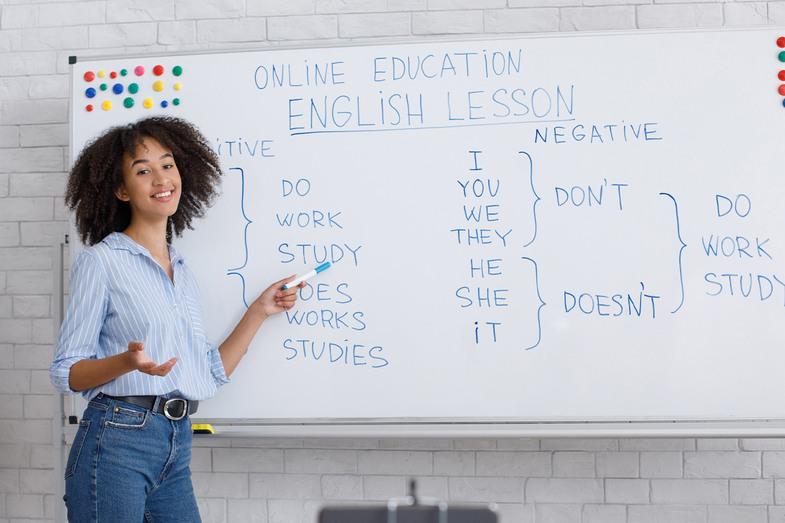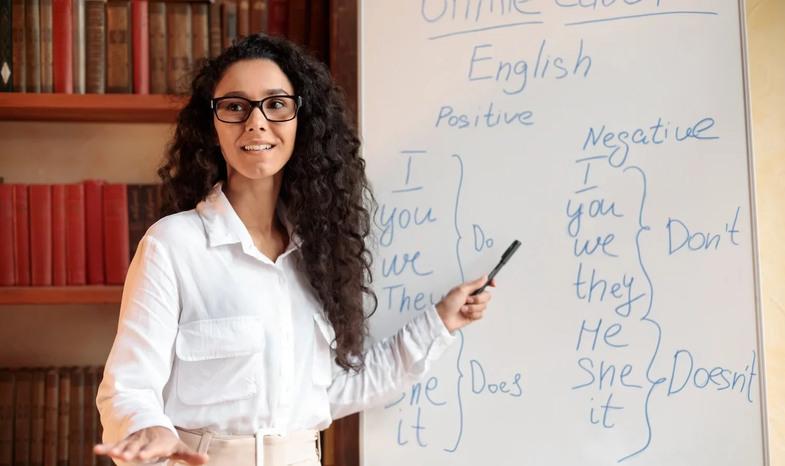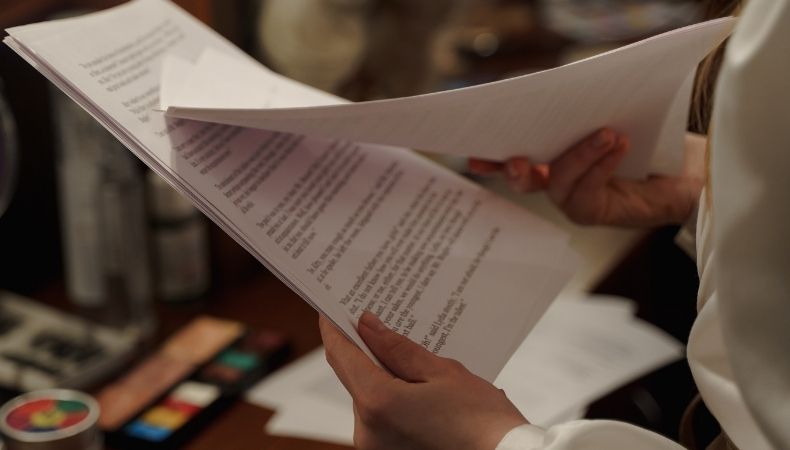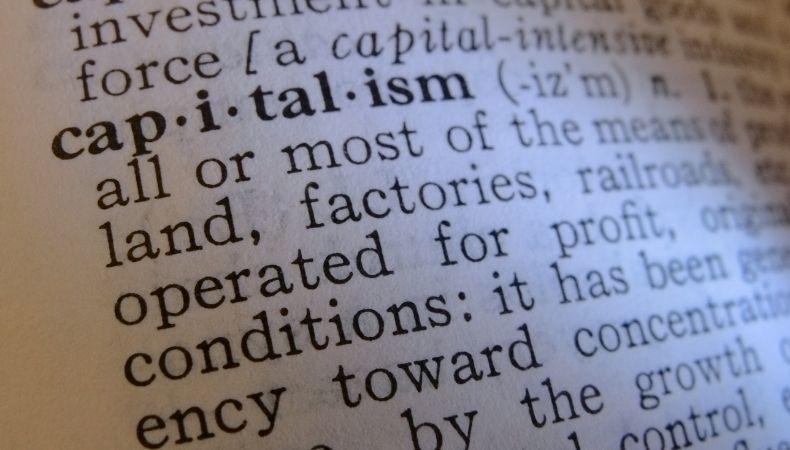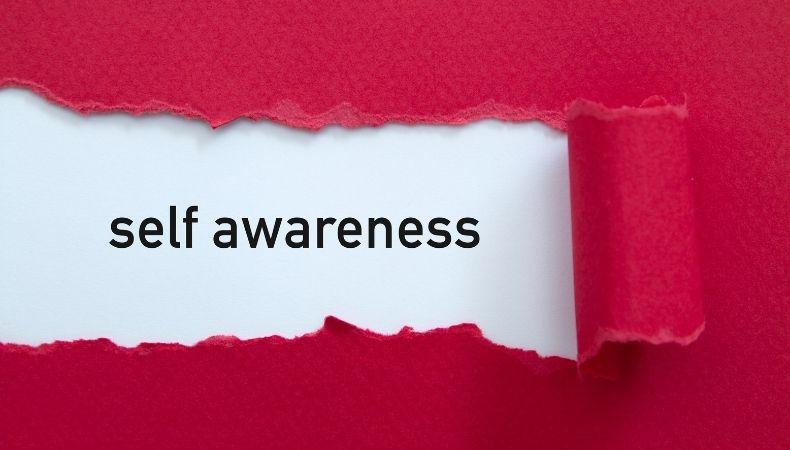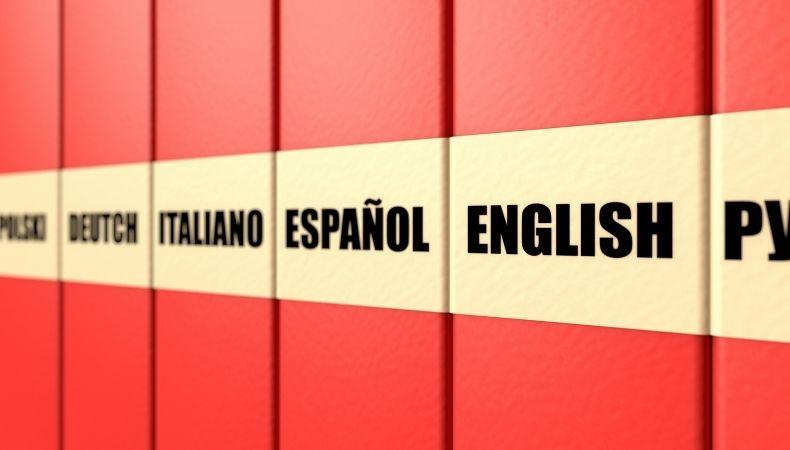İngilizce zamanlar, dilin temel yapı taşlarından biridir. Doğru bir şekilde kullanıldığında iletişimi çok daha net ve etkili hale getirir. Zamanlar, geçmişteki, şimdiki ve gelecekteki eylemleri ve durumları ifade etmek için farklı şekillerde kullanılır. Bu nedenle, İngilizce öğrenirken zamanların doğru bir şekilde anlaşılması ve uygulanması, dil becerilerinin gelişmesi açısından oldukça önemlidir.
İngilizce zamanlar, sadece dilbilgisel bir gereklilik değil, aynı zamanda dilin mantıklı bir şekilde yapılandırılmasını sağlayan önemli bir araçtır. Her bir İngilizce zaman, farklı bir durumu veya zamanı ifade eder. Örneğin, geçmişte tamamlanmış bir eylemi anlatırken Past Simple kullanılırken, şimdiki anda devam eden bir eylem için Present Continuous tercih edilir.
Zamanların doğru bir şekilde kullanılması, hem yazılı hem de sözlü ifadede anlam kaymalarını engeller ve mesajın doğru bir şekilde aktarılmasını sağlar. İngilizce zamanlar, dilin daha derin ve zengin bir şekilde kullanılmasına olanak tanır, bu da dil öğrenicilerinin kendilerini daha etkili bir şekilde ifade etmelerine yardımcı olur.
İngilizce Zamanlar
İngilizce’de kullanılan 12 tense şu şekide;
1) Present Simple Tense
Present Simple, günlük rutininizden veya genel gerçeklerden bahsederken kullanılır. Örneğin, “I eat breakfast every morning” (Her sabah kahvaltı yaparım) gibi bir cümlede bu zaman kullanılır.
| Subject (özne) | Positive (POZİTİF) | Negative (nEGATİF) | Question (sORU) |
|---|---|---|---|
| I | I play football. | I do not play football. | Do I play football? |
| You | You play football. | You do not play football. | Do you play football? |
| He/She/It | He plays football. | He does not play football. | Does he play football? |
| We | We play football. | We do not play football. | Do we play football? |
| You (plural) | You play football. | You do not play football. | Do you play football? |
| They | They play football. | They do not play football. | Do they play football? |
İlginizi çekebilir: İngilizce’de En Çok Kullanılan Kelimeler ve Cümleler
2) Present Continuous Tense
Present Continuous, şu anki zaman diliminde devam eden veya geçici eylemler için kullanılır. “I am studying right now” (Şu anda çalışıyorum) gibi bir örnekle anlatılabilir.
| Subject (özne) | Positive (POZİTİF) | Negative (nEGATİF) | Question (sORU) |
|---|---|---|---|
| I | I am playing football. | I am not playing football. | Am I playing football? |
| You | You are playing football. | You are not playing football. | Are you playing football? |
| He/She/It | He is playing football. | He is not playing football. | Is he playing football? |
| We | We are playing football. | We are not playing football. | Are we playing football? |
| You (plural) | You are playing football. | You are not playing football. | Are you playing football? |
| They | They are playing football. | They are not playing football. | Are they playing football? |
3) Present Perfect Tense
Present Perfect, geçmişte bir zamanda başlamış ve şu anla bir bağlantısı olan eylemler için kullanılır. Örneğin, “I have finished my homework” (Ödevimi bitirdim) dediğinizde, geçmişte tamamlanmış bir eylem şu anla ilgilidir.
| Subject (özne) | Positive (POZİTİF) | Negative (nEGATİF) | Question (sORU) |
|---|---|---|---|
| I | I have played football. | I have not played football. | Have I played football? |
| You | You have played football. | You have not played football. | Have you played football? |
| He/She/It | He has played football. | He has not played football. | Has he played football? |
| We | We have played football. | We have not played football. | Have we played football? |
| You (plural) | You have played football. | You have not played football. | Have you played football? |
| They | They have played football. | They have not played football. | Have they played football? |
4) Present Perfect Continuous Tense
Present Perfect Continuous, bir eylemin geçmişte başlayıp şu ana kadar devam ettiğini anlatmak için kullanılır. “I have been working for two hours” (İki saattir çalışıyorum) gibi bir örnekte, işin ne kadar zamandır devam ettiğini vurgular.
| Subject (özne) | Positive (POZİTİF) | Negative (nEGATİF) | Question (sORU) |
|---|---|---|---|
| I | I have been playing football. | I have not been playing football. | Have I been playing football? |
| You | You have been playing football. | You have not been playing football. | Have you been playing football? |
| He/She/It | He has been playing football. | He has not been playing football. | Has he been playing football? |
| We | We have been playing football. | We have not been playing football. | Have we been playing football? |
| You (plural) | You have been playing football. | You have not been playing football. | Have you been playing football? |
| They | They have been playing football. | They have not been playing football. | Have they been playing football? |
İlginizi çekebilir: İngilizce Zamirler (Kolay Anlatım ve Örnek Cümleler)
5) Past Simple Tense
Past Simple, geçmişte tamamlanmış bir eylemi anlatırken kullanılır. “I visited London last year” (Geçen yıl Londra’yı ziyaret ettim) gibi bir cümlede, geçmişte bir kez gerçekleşmiş bir olay anlatılır.
| Subject (özne) | Positive (POZİTİF) | Negative (nEGATİF) | Question (sORU) |
|---|---|---|---|
| I | I played football. | I did not play football. | Did I play football? |
| You | You played football. | You did not play football. | Did you play football? |
| He/She/It | He played football. | He did not play football. | Did he play football? |
| We | We played football. | We did not play football. | Did we play football? |
| You (plural) | You played football. | You did not play football. | Did you play football? |
| They | They played football. | They did not play football. | Did they play football? |
6) Past Continuous Tense
Past Continuous, geçmişte belirli bir zamanda devam eden eylemleri anlatmak için kullanılır. “I was watching TV when you called” (Sen aradığında televizyon izliyordum) örneğinde olduğu gibi, geçmişteki bir eylem kesintiye uğramıştır.
| Subject (özne) | Positive (POZİTİF) | Negative (nEGATİF) | Question (sORU) |
|---|---|---|---|
| I | I was playing football. | I was not playing football. | Was I playing football? |
| You | You were playing football. | You were not playing football. | Were you playing football? |
| He/She/It | He was playing football. | He was not playing football. | Was he playing football? |
| We | We were playing football. | We were not playing football. | Were we playing football? |
| You (plural) | You were playing football. | You were not playing football. | Were you playing football? |
| They | They were playing football. | They were not playing football. | Were they playing football? |
7) Past Perfect Tense
Past Perfect, geçmişteki bir eylemin başka bir geçmiş eylemden önce tamamlandığını anlatmak için kullanılır. “I had already eaten when she arrived” (O geldiğinde ben çoktan yemek yemiştim) gibi bir örnek, iki geçmiş eylemin sırasını gösterir.
| Subject (özne) | Positive (POZİTİF) | Negative (nEGATİF) | Question (sORU) |
|---|---|---|---|
| I | I had played football. | I had not played football. | Had I played football? |
| You | You had played football. | You had not played football. | Had you played football? |
| He/She/It | He had played football. | He had not played football. | Had he played football? |
| We | We had played football. | We had not played football. | Had we played football? |
| You (plural) | You had played football. | You had not played football. | Had you played football? |
| They | They had played football. | They had not played football. | Had they played football? |
İlginizi çekebilir: Günlük Yaşamda Kullanılan İngilizce Cümleler
8) Past Perfect Continuous Tense
Past Perfect Continuous, geçmişte bir süre boyunca devam eden ve başka bir geçmiş eylemle tamamlanan eylemleri anlatır. “I had been studying for two hours when the power went out” (Elektrik kesildiğinde iki saattir ders çalışıyordum) gibi bir cümle, geçmişteki sürekliliği vurgular.
| Subject (özne) | Positive (POZİTİF) | Negative (nEGATİF) | Question (sORU) |
|---|---|---|---|
| I | I had been playing football. | I had not been playing football. | Had I been playing football? |
| You | You had been playing football. | You had not been playing football. | Had you been playing football? |
| He/She/It | He had been playing football. | He had not been playing football. | Had he been playing football? |
| We | We had been playing football. | We had not been playing football. | Had we been playing football? |
| You (plural) | You had been playing football. | You had not been playing football. | Had you been playing football? |
| They | They had been playing football. | They had not been playing football. | Had they been playing football? |
9) Future Simple Tense
Future Simple, gelecekte yapılacak plansız eylemleri anlatmak için kullanılır. “I will go to the store tomorrow” (Yarın mağazaya gideceğim) gibi bir örnekte, gelecekteki bir planı ifade eder.
| Subject (özne) | Positive (POZİTİF) | Negative (nEGATİF) | Question (sORU) |
|---|---|---|---|
| I | I will play football. | I will not play football. | Will I play football? |
| You | You will play football. | You will not play football. | Will you play football? |
| He/She/It | He will play football. | He will not play football. | Will he play football? |
| We | We will play football. | We will not play football. | Will we play football? |
| You (plural) | You will play football. | You will not play football. | Will you play football? |
| They | They will play football. | They will not play football. | Will they play football? |
10) Future Continuous Tense
Future Continuous, gelecekte belirli bir zamanda devam etmekte olan bir eylemi anlatmak için kullanılır. “I will be working at 5 PM” (Saat 5’te çalışıyor olacağım) gibi bir örnek, gelecekteki sürekliliği belirtir.
| Subject (özne) | Positive (POZİTİF) | Negative (nEGATİF) | Question (sORU) |
|---|---|---|---|
| I | I will be playing football. | I will not be playing football. | Will I be playing football? |
| You | You will be playing football. | You will not be playing football. | Will you be playing football? |
| He/She/It | He will be playing football. | He will not be playing football. | Will he be playing football? |
| We | We will be playing football. | We will not be playing football. | Will we be playing football? |
| You (plural) | You will be playing football. | You will not be playing football. | Will you be playing football? |
| They | They will be playing football. | They will not be playing football. | Will they be playing football? |
11) Future Perfect Tense
Future Perfect, gelecekte belirli bir zaman diliminde tamamlanmış olacak eylemleri anlatır. “By next week, I will have finished the project” (Gelecek hafta, projeyi bitirmiş olacağım) örneğinde olduğu gibi, bir eylemin gelecekteki tamamlanma zamanını belirtir.
| Subject (özne) | Positive (POZİTİF) | Negative (nEGATİF) | Question (sORU) |
|---|---|---|---|
| I | I will have played football. | I will not have played football. | Will I have played football? |
| You | You will have played football. | You will not have played football. | Will you have played football? |
| He/She/It | He will have played football. | He will not have played football. | Will he have played football? |
| We | We will have played football. | We will not have played football. | Will we have played football? |
| You (plural) | You will have played football. | You will not have played football. | Will you have played football? |
| They | They will have played football. | They will not have played football. | Will they have played football? |
12) Future Perfect Continuous Tense
Future Perfect Continuous, gelecekte belirli bir zaman diliminde devam eden ve tamamlanmış olacak bir eylemi anlatır. “By next month, I will have been working here for a year” (Gelecek ay, burada bir yıl çalışmış olacağım) gibi bir örnekte, hem süreklilik hem de gelecekteki tamamlanma durumu anlatılır.
| Subject (özne) | Positive (POZİTİF) | Negative (nEGATİF) | Question (sORU) |
|---|---|---|---|
| I | I will have been playing football. | I will not have been playing football. | Will I have been playing football? |
| You | You will have been playing football. | You will not have been playing football. | Will you have been playing football? |
| He/She/It | He will have been playing football. | He will not have been playing football. | Will he have been playing football? |
| We | We will have been playing football. | We will not have been playing football. | Will we have been playing football? |
| You (plural) | You will have been playing football. | You will not have been playing football. | Will you have been playing football? |
| They | They will have been playing football. | They will not have been playing football. | Will they have been playing football? |
13) Bonus: Future with “Going to”
Future with “Going to”, gelecekteki planlar ve niyetler için kullanılır. “I am going to travel next summer” (Gelecek yaz seyahat edeceğim) gibi bir cümlede, gelecekte yapılacak bir eylem veya plan anlatılır. “Will” ifadesi de gelecek zaman belirtiyordu. Fakat “Will” anlık bir plan olduğu zaman kullanılıyor genelde. “Going to” yapısı ise önceden planlanmış bir eylem için kullanılır.
| Subject (özne) | Positive (POZİTİF) | Negative (nEGATİF) | Question (sORU) |
|---|---|---|---|
| I | I am going to play football. | I am not going to play football. | Am I going to play football? |
| You | You are going to play football. | You are not going to play football. | Are you going to play football? |
| He/She/It | He is going to play football. | He is not going to play football. | Is he going to play football? |
| We | We are going to play football. | We are not going to play football. | Are we going to play football? |
| You (plural) | You are going to play football. | You are not going to play football. | Are you going to play football? |
| They | They are going to play football. | They are not going to play football. | Are they going to play football? |
İngilizce Zamanlar İle İlgili Videolar

Kaynak: 1





